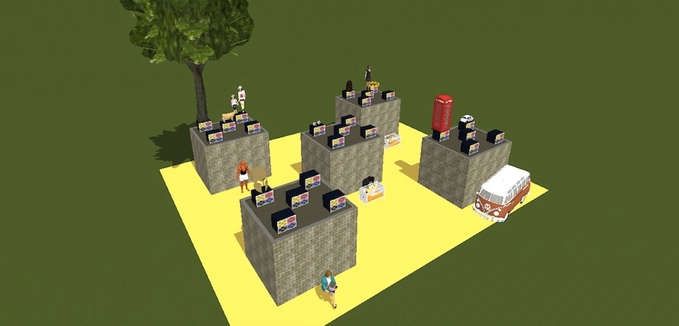You know what’s so hot right now? Virtual reality.
It’s London Technology Week, and one of the very first events in this exciting programme was about VR – an area of tech currently experiencing high growth and attracting a lot of attention from investors.
On Monday 20 June, we heard from a series of speakers, many of whom had a strong focus on VR for good. The signature offering was linguistic VR learning platform Macunx, which has just launched on Kickstarter.
Don’t worry if you missed it, because we’ve got the runthrough of exactly what went on.
The heart of the city
The event very aptly took place in Rise London, a very trendy working space above a hipster café in the heart of Bethnal Green, just on the doorstep of the City, the UK’s financial centre.
Among the VR hopefuls were a mixture of social enterprise groups looking to do good with technology, gaming companies pushing the boundaries of ‘immersive’ gaming, and universities using VR to connect with their international students by finding new ways of learning.
VR current trends
There were a couple of panels that discussed some current trends in VR. What’s happening right now? Where is it going? What makes a successful VR startup?
The anticipation was palpable as both new players in the industry, and old hats, gave their thoughts on how to ride the wave of VR.
We’ve gone through several technological stages, from social-based to product-based tech. We are now in the age of experience-based tech, where usability and how someone feels when interacting with technology is of utmost importance. There is a high demand for fully-immersive games that seem totally real to the player.
Industry experts warn that it will be at least ten years before VR technology is at the stage where the graphics of games don’t look a bit ‘glitchy’.
However, investors still want startups that can already bring a workable product to the table, so prospects look good for companies already at this stage.
These things go in cycles, and while it’s VR’s time again, VR enthusiasts need to learn a lesson from history and be mindful that the growth of this technology may not continue unabated.

Image: attendee trying on VR headset
VR for social good
What is clear is that virtual reality has huge potential to be used for social good, but it must developed responsibly with accountability on businesses to produce quality products.
Macunx may offer that for VR, as it will use virtual reality technology to help children with dyslexia, some of whom have never been able to memorise a single phone number.
People with dyslexia have difficulty interpreting ‘symbolic’ forms of information like words and numbers, because the meaning of these symbols cannot easily be apprehended by the brain.
Rather than being a learning difficulty, however, Dr Kate Saunders from the British Dyslexia Association characterises this as a learning difference – and one that can be accommodated by the use of VR to facilitate different modes of learning.

Image: Memory palace
Memory palaces
Based in Cambridge and in partnership with Westminster University, the memory techniques that will be employed by Macunx have already been used by Dr Aaron Ralby and his team at Linguisticator to help children with dyslexia to learn phone numbers, repeat them backwards and retain the memory for several weeks.
The software will improve memory by employing a ‘memory palace’ – a memory technique that has been known for hundreds of years, but was recently popularised in the national imagination by the TV program Sherlock.
People employing a memory palace can associate an itemised list of information to with memorable imagery to aid recall.
For example, a list of the first kings of England can be associated with images that remind the person of each King’s name. This imagery is then imagined within a physical space, such as a castle, or Cambridge university.
Previously, the person using their memory palace would simply imagine the location and the information placed around it, but now, with Macunx, someone could quite literally walk around the space of their choosing.
Beyond helping people with dyslexia, Macunx can enable people to learn whole languages using a specifically-designed memory palace, vastly accelerating the pace and scope of what one person could typically expect to learn in a lifetime.
Macunx has just launched on Kickstarter. Head over to their page to find out more and support them.



